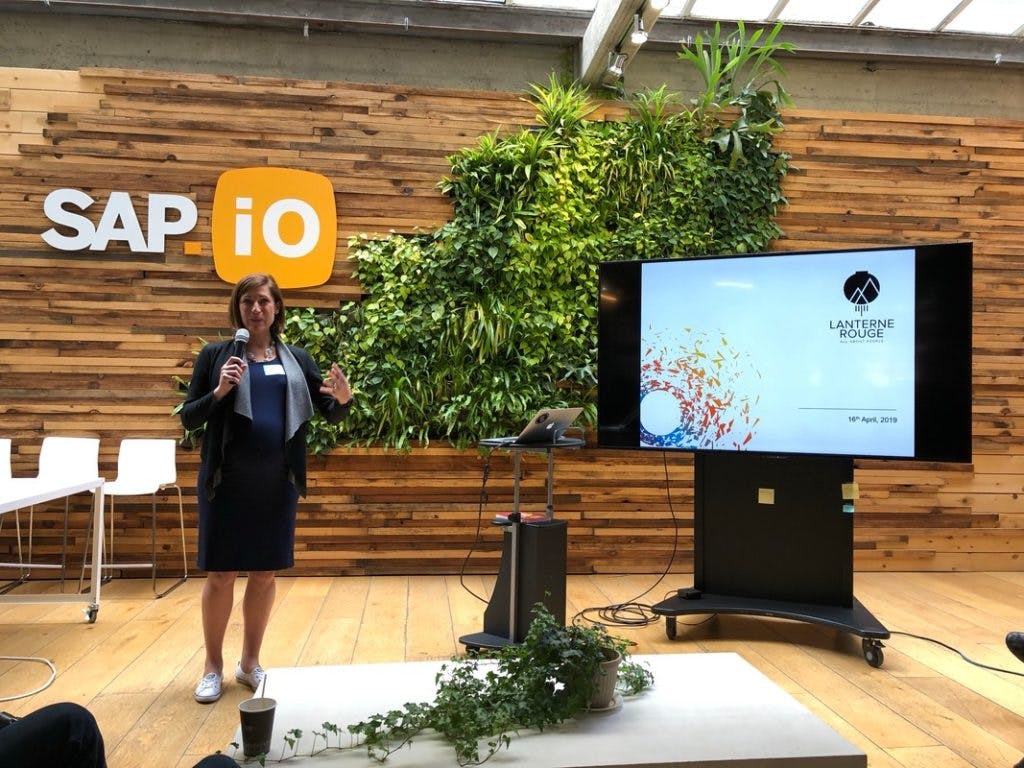What Is Coaching Tech?
Posted by Alexandra Lamb
Coaching technology is an emerging field encompassing all digitisation of professional coaching. Just as the term coaching requires qualification, in consideration of the many forms of coaching and the emerging space through which it is being defined, so too does coaching tech, which can be so broad that it deserves qualification.
Professional coaching is a young field of work, and is still building it’s professional body of research and evidence-backed approaches. It has traditionally involved a face to face meeting between a qualified coach and a senior executive, working through goals, development objectives, challenging relationships, mental wellness and other highly personalised career experiences. However even before COVID, companies started calling for the coaching industry to innovate and digitize. They wanted to ‘democratize coaching’, meaning that they were seeing the great value for their executives and wanted to extend the offering across the organisation, but needed a different cost model to deliver to junior staff. The natural solution, as we were concurrently going through the trend towards automation, was to bring in technology to support the process at scale.
This is where the concept of coaching tech splits. We loosely see an offline to online coaching tech, a workflow focused coaching tech, and a bot focused coaching tech. However across each sub-type, there exists the great opportunity for insights and intelligence into the ROI of coaching, which is where coaching tech poses it’s greatest opportunity for businesses.
Coaching Technology - Offline to Online
Even before COVID, the rise of the online meeting was clear, and naturally this applied to coaching, however it was accelerated during the work from home era. On the one side, for coaches this meant cutting out costly travel time, and also meant they could deliver engagements to a broader pool of coachees. This opened business opportunities and cut costs, however for many coaches it meant learning a new way of building rapport, and for some, new technical skills. Setting is so critical to coaching, and so while agile coaches and coachees adjusted naturally, it was a significant shift for many when they lost control of the coaching environment.
For coachees, this might have seemed like a mutually beneficial move, however we heard a lot about the ‘loss’ of not having met their coach in person. In today’s work world, the online meeting seems common place, but for some companies literally delivering coaching via zoom represented digitization. In this sense, beyond rapport building, there’s fundamentally no change or enhancement to the coaching process, but more so a clear common sense solution to keep engagements progressing.
Coaching Technology - Workflows
This is probably a simple hygiene factor for the coaching sector, but the standardization of workflows posed by automation of coaching was a significant improvement, and one which is still underway. There’s no standard, universal standard for coaching workflows, however it roughly includes a chemistry meeting, ongoing 1 hour sessions (at intervals determined by the coach and coachee), sometimes with a stakeholder meeting at the beginning and end. Different coaches have their own personal booking processes and check in processes, however there’s no standards of quality control or coachee feedback.
So by digitizing coaching through a platform, whether the session itself takes place face to face or online, the platform enables consistency of quality check-ins and feedback from all parties (coach, coachee, HR, coachees manager etc) at key points in the journey. Again, this sounds so simple! However in the analogue world of coaching, we rely on the coach themselves to do service check ins, which don’t always happen, and are biased by nature of their direct influence. So while smoothing the calendar booking process and asking for feedback may sound rudimentary, it’s started to form some general understanding amongst buyers and receivers of coaching as to ‘what coaching should look like’ in a service model. This again allows coaching to be scaled.

Coaching Technology - Bots
So far, our discussion has been related to human coaching, with a live coach working 1:1 with a coachee. However, removing the live coach, or augmenting live coaching with bots, represented one way to achieve the remit to democratize coaching. After all, bots are cheaper than coaches, and can be trained for some of the more simple aspects of coaching, such as conversations for goal setting and self-awareness. But there’s been a divergence in this space - while some coaching tech continues to augment the live coach with bots, reinforcing the traditional delivery model, other coaching tech has moved purely in the direction of digital interactions.
These purely bot-driven coaching methods are usually delivered through chat functions on other applications, such as slack and FB messenger, and vary in how ‘smart’ they are (ie how much machine learning is involved to customize the chat to the coachee). This type of product can be valuable for in-work nudges and feedback loops, however confounds the actual value of ‘true coaching’. We anticipate that bot-driven coaching is on the rise, however time will tell us what it’s efficacy is for behaviour change and goal attainment for coachees.
Coaching Technology - Insights
The biggest potential that coaching tech offers is for companies who deliver coaching at scale, and want to not only standardize processes and quality control but also gain reporting insights from the data, is the opportunity to consistently measure coaching ROI. With consistent data across multiple coaching engagements, organisations can make better decisions about their coaching spend, methodology, and coach performance.
So while many organisations are happy with their coaches, and even deploy some of the above automations to benefit singular engagements, companies with more mature coaching cultures are looking to analyse data with a view to building the case to further invest in coaching.
In Summary: This is just the beginning of coaching tech! We’re in the first chapter of demonstrating where technology adds value to the learning process and goal achievement of coaching. We need better definition of the language to distinguish the benefits and sub-schools of coaching tech, and build evidence based research to substantiate its utility. The best is yet to unfold. Reach out to BOLDLY on connect@boldly.app or visit us at boldly.app to find out more about our coaching technology offerings.
Some additional reads:
Harvard Business Review - How Technology Is Transforming Executive Coaching
Forbes - 10 Ways Technology Is Changing Coaching Now And In The Future
About the Author:
Alexandra Lamb is an accomplished organisational development practitioner, with experience across APAC, North America, and MENA. With 20+ years in professional practice, conglomerates, and startups, she has collaborated with rapid-growth companies and industry innovators to develop leaders and high-performance teams. She is particularly experienced in talent strategy as a driver for business growth. Drawing from her experience in the fields of talent management, psychology, coaching, product development, and human-centred design, Alex prides herself on using commercial acumen to design talent solutions with true impact.




